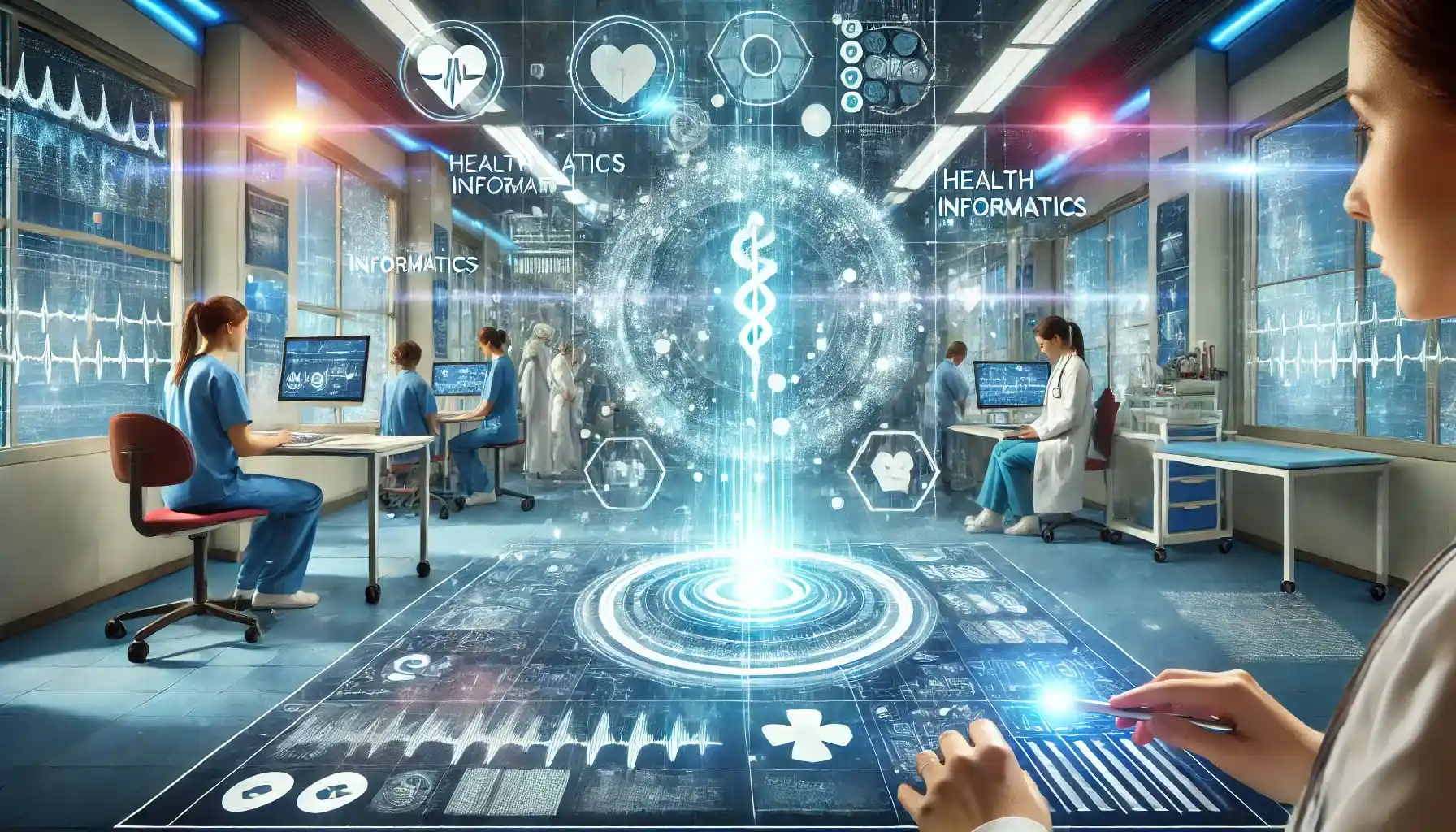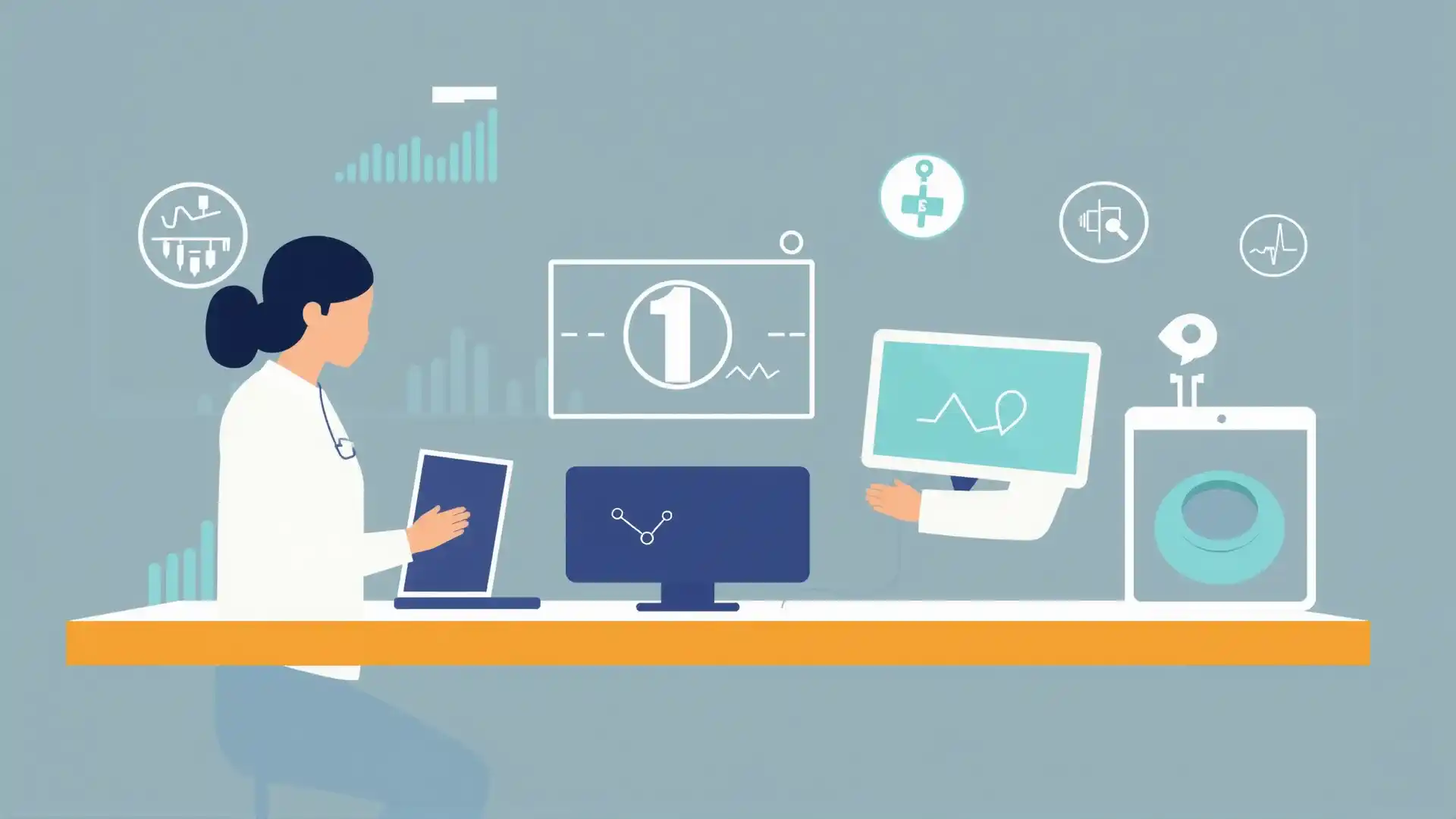Table of Contents
In today’s rapidly evolving healthcare landscape, the integration of health informatics is reshaping how medical professionals deliver care, manage data, and improve outcomes. Health informatics harnesses the power of data and technology, paving the way for more efficient and patient-centric healthcare systems.
Here’s a look at seven impactful ways health informatics is transforming modern healthcare.
1. Enhancing Patient Care through Data-Driven Insights in Health Informatics
- One of the most significant ways health informatics is impacting modern healthcare is by providing data-driven insights that lead to more effective and personalized care.
- Health informatics leverages electronic health records (EHRs) to compile comprehensive patient histories, including past illnesses, surgeries, allergies, current medications, and genetic predispositions.
- This wealth of information enables healthcare professionals to detect underlying patterns that may not be immediately obvious, leading to more accurate diagnoses and tailored treatment plans.
- Imagine a scenario where a physician can instantly access a patient’s full medical history, reducing the need for repetitive tests and minimizing delays in critical decision-making. This level of data accessibility not only enhances care quality but also boosts patient safety.
2. Improving Communication and Coordination Among Providers
- Effective communication and collaboration among healthcare providers are crucial for quality patient care.
- Health informatics has revolutionized the way medical teams communicate, facilitating real-time data exchange and collaboration across departments.
- For instance, a specialist working in a hospital can instantly share a patient’s lab results and imaging scans with a primary care physician, enabling faster and more cohesive treatment strategies. This is particularly vital for patients with complex or chronic conditions who may be receiving care from multiple specialists.
- By reducing communication gaps and ensuring that all members of a care team are informed, health informatics reduces medical errors, prevents treatment duplication, and improves overall patient outcomes.

3. Enabling Predictive Analytics for Preventive Care
- Preventive care is a cornerstone of modern medicine, and health informatics plays a crucial role in advancing this approach through predictive analytics. By analyzing large-scale datasets, healthcare professionals can identify risk factors and predict which patients are more likely to develop certain diseases.
- This data-driven foresight allows for early interventions that can prevent the onset of illnesses or manage conditions before they become severe. For example, algorithms can assess patterns in patient data to predict who might be at risk for diabetes or heart disease.
- Physicians can then proactively offer lifestyle interventions, monitoring, and medications to help prevent these conditions. This not only improves individual patient outcomes but also significantly reduces healthcare costs associated with managing advanced diseases.
4. Transforming Patient Engagement and Self-Care
- Health informatics has empowered patients to take an active role in managing their own health. With advancements such as patient portals, wearable health devices, and mobile apps, patients can access their medical records, monitor their vital signs, and even communicate with their healthcare providers from anywhere in the world.
- These tools make it easier for patients to track their progress, set health goals, and receive personalized health advice. For example, patients with chronic conditions like hypertension can use wearable devices to monitor their blood pressure daily and receive alerts if readings go beyond safe limits.
- This instant feedback encourages adherence to treatment plans and promotes healthier habits. By putting more control in patients’ hands, health informatics fosters greater engagement, enhances self-care, and improves overall health outcomes.
5. Facilitating Medical Research and Innovation
- The integration of health informatics into medical research has opened up new frontiers in understanding diseases and developing treatments.
- Researchers can now analyze data from millions of patients worldwide, uncovering insights that were previously out of reach. This ability to handle and interpret large, diverse datasets accelerates the discovery of new drugs, the development of treatment protocols, and the understanding of how different demographics are affected by diseases.
- For example, health informatics systems can analyze data to identify how different genetic markers influence the effectiveness of cancer treatments. This data-driven research enables the creation of personalized medicine strategies, where treatments are tailored to an individual’s genetic makeup, increasing the likelihood of successful outcomes.
6. Enhancing Public Health Surveillance and Response
- Health informatics is a powerful tool for public health officials tasked with monitoring and controlling disease outbreaks. By analyzing data from hospitals, clinics, and laboratories, health informatics systems can identify emerging health threats and track the spread of diseases in real-time.
- This was crucial during the COVID-19 pandemic, where data-driven models helped governments and healthcare systems allocate resources, predict surges in cases, and implement timely interventions.
- Furthermore, health informatics aids in vaccination tracking and the management of preventive health programs, ensuring that public health initiatives are as effective and targeted as possible. By transforming how health data is collected and analyzed, health informatics significantly strengthens the global health surveillance network.

7. Streamlining Administrative Processes and Reducing Costs
- Administrative inefficiencies are a significant challenge in healthcare, often resulting in increased costs and delays in patient care.
- Health informatics addresses these inefficiencies by automating routine administrative tasks such as patient registration, billing, appointment scheduling, and insurance claims processing.
- For instance, electronic health records eliminate the need for paper-based charts and reduce the time spent on manual data entry, freeing healthcare professionals to focus more on patient care. Automated systems also minimize errors related to paperwork and ensure that claims are processed accurately and quickly.
- By streamlining these processes, health informatics not only enhances the operational efficiency of healthcare facilities but also reduces administrative burdens and lowers overall healthcare costs.
Conclusion
Health informatics is revolutionizing healthcare by improving patient care, facilitating research, empowering patients, and streamlining operations. As technology continues to evolve, the potential of health informatics to transform healthcare even further is immense.
From data-driven insights to proactive disease prevention and efficient communication, health informatics is laying the groundwork for a future where healthcare is smarter, faster, and more patient-focused than ever before. Embracing these advancements will ensure a more resilient and effective healthcare system for generations to come.